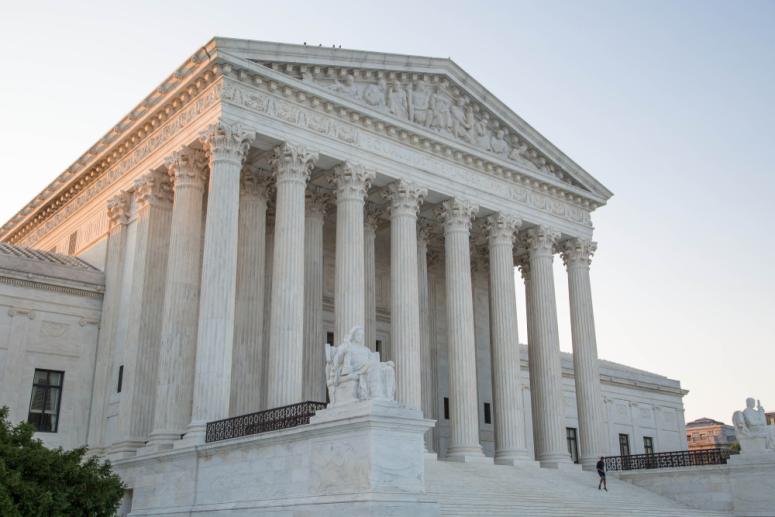
On June 29, 2023, the Supreme Court of the United States (Supreme Court) ruled in Students for Fair Admissions v Harvard and Students for Fair Admissions v. University of North Carolina that the schools’ race-conscious admissions programs violated the Equal Protection Clause of the 14th Amendment. This decision has broad implications for all institutions of higher learning, limiting as it does the consideration of an applicant’s race to advance the diversity goals of an institution.
But it has distinct and particularly troubling implications for admissions to medical school, and by extension, the future diversity of the health professions workforce. Medical schools already suffer a dearth of diverse applicants and matriculants, despite decades of effort at the local, state, and national levels to attract more students of color. In 2022, Black or African American students made up 10 percent of the student body, while Hispanic or Latino students made up 12.3 percent, according to data collected by my organization, the Association of American Medical Colleges (AAMC). (By comparison, 52 percent of the class of 2022 self-identified as White.)
Historically, there are several reasons why the use of race as one factor in the holistic review of applications is important. The simplest reason is that minorities continue to be significantly underrepresented in the health professions. As an example, among American physicians, five percent identify as Black and roughly seven percent identify as Hispanic when their representation in the working-age population is 12 percent and 18 percent, respectively.
The second is that diversity in every respect improves the functions of a team. Having a diversity of thought (often connected to a diversity of background) improves the identification of and production of solutions to problems. In the setting of educating health professionals, this also means that students with varied backgrounds bring a variety of life experiences, including experience with different disease states and causal pathways, which allows them to ask better questions and incorporate a full range of information in diagnosis and treatment. In the educational setting, this can result in an improved educational experience for everyone involved. Hopefully, it also serves to educate the educators.
In medical school and residency, the higher education setting with which I am most familiar, patient care, population health, and research are all a part of the curriculum. Which brings me to another important reason: A diverse understanding of patients, their lived experiences, and the health of populations leads to better health outcomes. We see this clearly in the research, which finds that racial concordance can improve communication, trust, and adherence to medical advice. One study of county-level health data found that on average, every 10 percent increase in the representation of Black primary care physicians was associated with 30.6 days of greater life expectancy among Black people.
As a physician, I am troubled by the implications of the Supreme Court’s recent decision to limit the use of race and holistic review for reasons directly related to the care of individuals and populations.
As a health services researcher, I’m equally concerned about the ruling’s potentially negative impact on our ability to formulate and answer research questions that benefit the health of all.
In my own experience, first as a trainee and then as a physician and researcher, I have seen individuals from diverse racial, ethnic, geographic, and socioeconomic backgrounds raise research questions that otherwise may have been overlooked by teams looking to improve the science and delivery of health care.
As health services researchers, we collect demographic information so that we can make comparisons between different populations. That might include information about age, comorbidities, race, ethnicity, income, geographic location, educational status, and so on.
For instance, if cancer rates of survival are different between two populations and those populations are significantly different in terms of race or age, for example, it's likely to raise more questions and require further analysis.
While the SCOTUS ruling won’t affect the collection of similar demographic information for admissions, it may impact the degree to which such information can be used.
When we limit the ability of those with expertise in the education and training of health professionals to understand the backgrounds of the populations of the students that they admit, we limit institutions’ ability to educate the next generation of health professionals and also their ability to better understand how to improve health outcomes and health equity for all. It’s that simple.
I am a South Asian American male in medicine who has felt “included” at every stage. But that experience may be different from others aspiring to health care careers depending upon where in Asia they hail from — or their parents’ educational level, or income, or other factors. More information —not less — improves our ability as educators, researchers, and health professionals to make decisions.
The Court’s decision won’t eliminate the need for a diverse health care study body and workforce in order for our nation’s health to improve. But without the explicit ability to use race as a factor in admissions decisions, the ruling will reduce the presence of underrepresented minority students—which means a less diverse health care workforce less equipped to care for an increasingly diverse population.